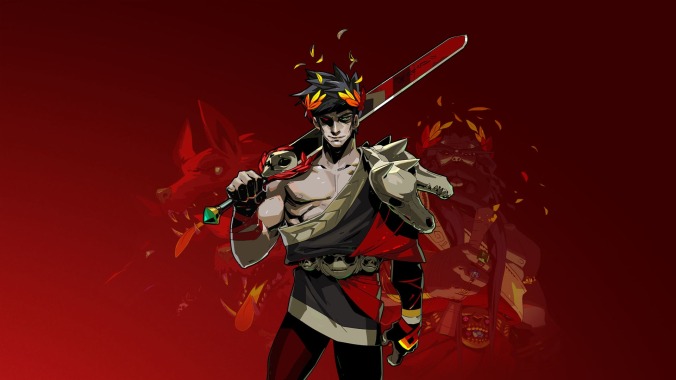Hades makes dying fun as Hell

Every Friday, A.V. Club staffers kick off our weekly open thread for the discussion of gaming plans and recent gaming glories, but of course, the real action is down in the comments, where we invite you to answer our eternal question: What Are You Playing This Weekend?
When did we all start seeking the infinite game?
It feels new, right? Despite generations of quarter-sucking arcade machines out there, testing for perfection, the idea of finding the one game we’ll spend the next 100 (200, 300, 700) hours with, the perfect endless playground that will eat up the vast blank expanse of the days ahead of us, feels like a new demand we’ve only recently placed upon the medium. In the big-budget gaming sphere, the quest has manifested largely in the games-as-service trend, endlessly ascending piles of content with their devious brain hooks imported from World Of Warcraft, married to glossy shooter gameplay like Destiny or Destiny 2. (Or Marvel’s Avengers, if you don’t mind it being a brawler, and also not actually very glossy at all.)
In the indie spaces, this same pursuit has led to the rise of the rogue-lite, games (The Binding Of Isaac, Rogue Legacy, Dead Cells, name your darling of the month) that promise as many “runs” through themselves as a player could possibly stomach. The reward for success (and often even failure) in these games is usually the addition of new mechanics, enemies, items, etc. to the pool of stuff you can encounter with every (probably failed) trek through the game. “Run” games are designed to be addictive, to trigger that “once more into the procedurally generated breach” feeling in our brains, as the promise of steadily rising power, and a similarly steady drip of new content, keeps us hitting “New Game” over and over again.
What these games do not excel at, as a rule, is telling stories. To be fair, it’s hard to write a narrative that supports this kind of obsessive, semi-iterative grinding—one trip down into Mom’s Womb in Isaac is pretty much just like another, give or take a few different bosses, power-ups, or grotesque skin infections. Like Sisyphus rolling the thing up the other thing, the appeal of these games is typically in trapping yourself (willingly) in doing the same actions over and over again, with roughly the same result—and calling it fun, instead of madness.
Is it any wonder, then, that the first truly great narrative rogue-lite is all about being trapped in hell?
Tartarus, rather—that’s the Greek-mythology-derived setting for Hades, Supergiant Games’ new attempt to translate the aesthetic wonders that made Bastion (and to a lesser, but still significant, extent, Transistor and Pyre) such breaths of fresh gaming air directly into the rogue-lite genre. Fresh out of Early Access this week, Hades has dozens of smart ideas, and one revolutionary one, driving its tale of a prince of the damned seeking egress from his father’s stolidly sepulchral house. That One Big Idea? Making dying a direct and vital part of the game’s story, as main character Zagreus is continually knocked back down into his father Hades’ halls, a whole cast of delightful characters (including, yes, Sisyphus himself) ready to comment on his latest failure to escape his fate.
Hades plays great, obviously—SuperGiant has been nailing this sort of deeply customizable action gameplay, full of meaty choices and quick reactions, for nearly a decade at this point. But it’s in incorporating Zagreus’ many, many deaths into its story—and then supporting those moments with warm writing, beautiful art, and the studio’s typically obsessive commitment to great vocal performances—that the game feels genuinely new. The irony of all this advancement-by-dying is that Supergiant has created a game about fighting one’s way out of the depths of inertia and despair that never feels anything less than joyful, even when it’s cheerfully kicking in your teeth. After all, every death is just another opportunity to say hey to Cerberus, or Achilles, or Hades himself—before tossing yourself out a window to start the ever-hopeful climb all over again.